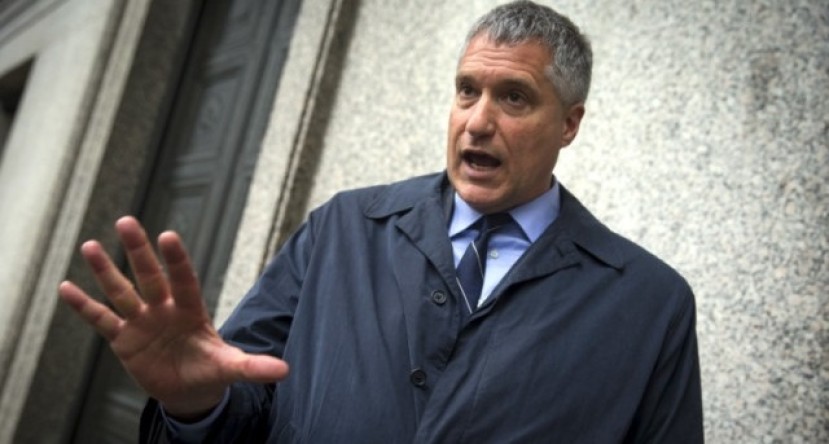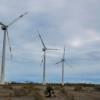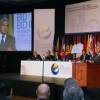Caso Chevron
Manhattan judge denies attorney Donziger’s bid to dismiss criminal charges
A Manhattan federal judge denied on Thursday the latest bid by embattled attorney Steven Donziger to dismiss criminal contempt charges against him arising from his battles against Chevron Corp over pollution in the Ecuadorian rainforest.
Reuters 06/05/2021

Manhattan judge denies attorney Donziger’s bid to dismiss criminal charges
A Manhattan federal judge denied on Thursday the latest bid by embattled attorney Steven Donziger to dismiss criminal contempt charges against him arising from his battles against Chevron Corp over pollution in the Ecuadorian rainforest.
Senior U.S. District Judge Loretta Preska said that Donziger, who is set to appear before the judge on Monday to face six counts of criminal contempt, failed to prove the case against him should be tossed out on the basis that the prosecution has violated his constitutional due process by acting in "vindictive and selective" ways. The judge reasoned that Donziger had provided conjecture and suppositions, but no evidence to support his claims.
Donziger's attorney Martin Garbus of Offit Kurman said that Preska "continues to ignore the fact that this is a Chevron prosecution paid for by Chevron dollars by a judge who unconstitutionally appointed her." Chevron spokesman Jim Craig said the company does not have a comment on the matter.
Rita Glavin, a private lawyer working for the prosecution alongside Brian Maloney of Seward & Kissel, declined to comment.
Last month, Donziger filed a third motion to dismiss the six counts of criminal contempt. His trial in the case is scheduled for May 10.
In her ruling, Preska said that the disbarred human rights lawyer's contentions were "recycled."
Donziger's criminal case springs from post-judgment orders in a civil case in which U.S. District Judge Lewis Kaplan in 2014 barred enforcement in the United States of a $9.5 billion judgment against Chevron which Donziger had won in an Ecuadorian court. The judge found the ruling had been obtained through fraud.
Preska disagreed with Donziger's arguments that the prosecution had acted in a vindictive and selective manner, including because Kaplan pressed forward with the charges despite the Southern District of New York declining to prosecute him in 2019.
Kaplan ordered the appointment of private lawyers to prosecute the criminal contempt case.
Preska said that decision and others did not meet the high threshold to show vindictiveness, namely that a prosecutor harbors animus toward a defendant, and that the defendant would not have been prosecuted short of that animus.
Donziger's arguments also did not persuade Preska of a selective prosecution, which requires proving discrimination as a cause for the prosecution.
"At base, Mr. Donziger's assertions of vindictiveness and selectivity boil down to his disagreement with several of Judge Kaplan's decisions (or comments) in the underlying civil proceedings," Preska wrote.
Also on Thursday, a split New York state appeals court refused to take a separate case, also involving Donziger, in which he sought to fight a lower court ruling that last year disbarred him in the state.
The case is United States v. Donziger, U.S. District Court for the Southern District of New York, No. 1:19-cr-00561. For United States: Rita Glavin of Glavin PLLC and Brian Maloney of Seward & Kissel
For Donziger: Martin Garbus of Offit Kurman
Fuente OriginalNotas relacionadas
-
 Tiburones, mantarrayas, atunes, calamares, tortugas y hasta aves, las especies que son arrasadas por la flota china en las cercanías de Ecuador
Tiburones, mantarrayas, atunes, calamares, tortugas y hasta aves, las especies que son arrasadas por la flota china en las cercanías de Ecuador -
 Según ministro de Salud, cerca del 22% de la población de Quito estaría contagiada de COVID-19
Según ministro de Salud, cerca del 22% de la población de Quito estaría contagiada de COVID-19 -
 75.000 tiendas de barrio cerraron por emergencia
75.000 tiendas de barrio cerraron por emergencia -
 Bonos verdes se emitirán por primera vez en Ecuador
Bonos verdes se emitirán por primera vez en Ecuador -
 Miami financial advisor gets 3-1/2 years for bribing PetroEcuador officials
Miami financial advisor gets 3-1/2 years for bribing PetroEcuador officials -
 BID determina tres debilidades en la economía ecuatoriana
BID determina tres debilidades en la economía ecuatoriana
